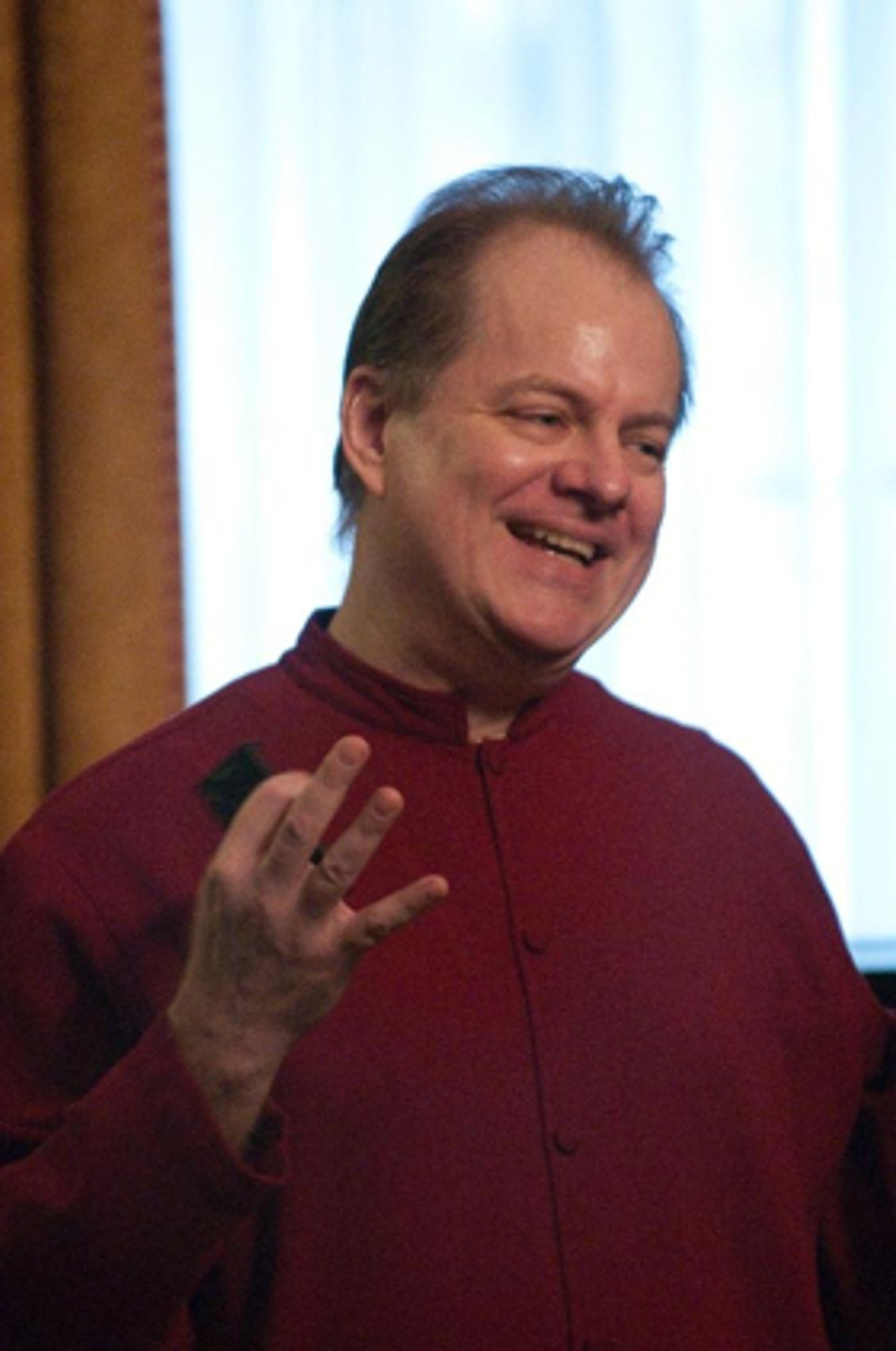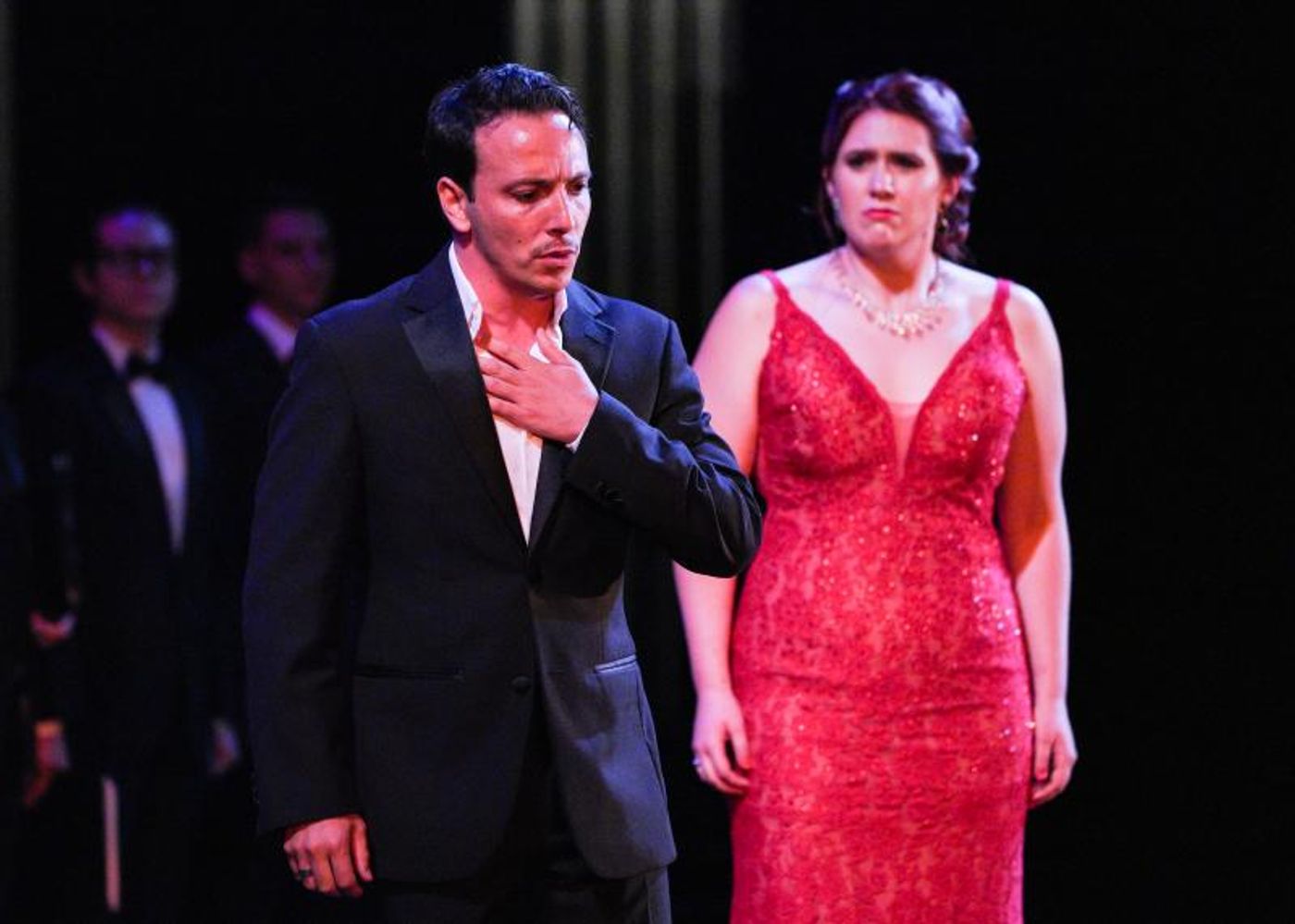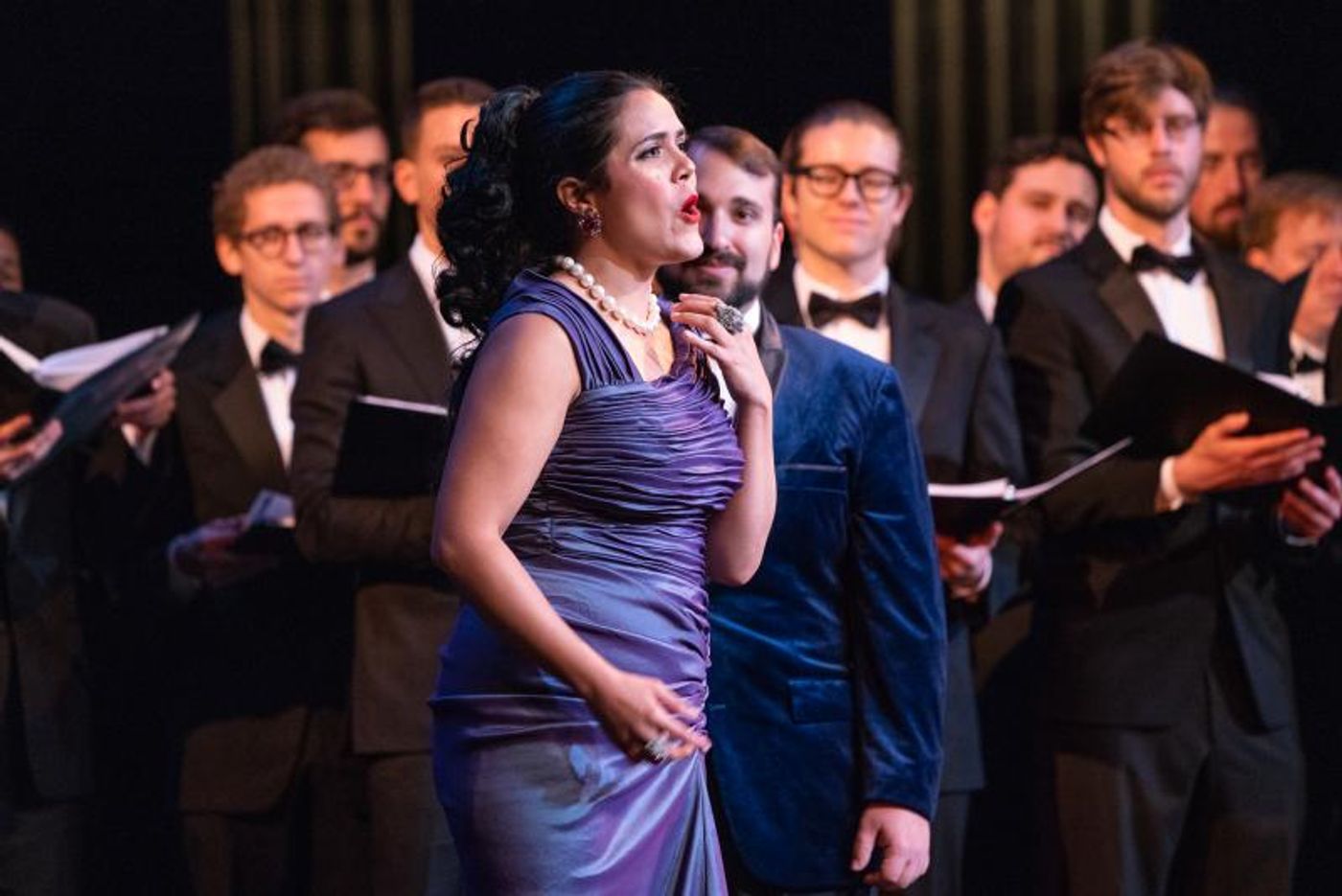Interview: Crutchfield Builds a Fire with New Opera Enterprise

Photo, Gabe Palacio
To characterize Will Crutchfield as a Renaissance Man would be an understatement in the extreme. The former music critic (the youngest in the history of The New York Times) wears multiple chapeaus as conductor, musicologist, and educator. Having held conducting posts with the Caramoor Festival, the Orchestra of St. Luke's and Polish National Opera and guest conducted with Canadian Opera and Washington National Opera, he also has kept himself busy preparing critical editions of such operas as Rossini's less frequently performed Aureliano in Palmira.
Notwithstanding his impressive CV, Crutchfield has found time for a new passion: Teatro Nuovo, a musical organization that premieres its semi-staged productions of 19th century opera on period instruments this week at The Performing Arts Center at Purchase College. Teatro Nuovo will expand its operations to include a new permutation of the Bel Canto at Caramoor training program for young up-and-coming singers. The opening week's repertoire will include Rossini's Tancredi and Mayr's Medea in Corinto.
Erica Miner: Congratulations, Will, on your newly minted festival! How did you transition from your life as a music critic for The New York Times to that of an opera conductor?
Will Crutchfield: Before working for the paper I had done the usual apprentice-conductor things-playing for rehearsals, coaching singers, conducting backstage chorus, etc.-with small opera companies. So it was really just picking up an interrupted process, by conducting a few operas at conservatories, with student orchestras and singers. Those went well, so the transition to full-time conducting happened pretty naturally.
EM: When, how and with whom did you conceive of Teatro Nuovo and the Bel Canto Festival?
WC: Teatro Nuovo is both a radical new venture and a continuation of a long-standing program. It grows out of "Bel Canto at Caramoor," which ran for twenty years and put on more than forty operas. Along the way we started a training program for young singers which grew and grew, and it needed a new home to accommodate and continue that growth. By being in residence on a campus, we were able to double the teaching faculty and spend far more time helping the singers one-on-one to put the lessons we're teaching into practice in each singer's voice. We're teaching classic Italian vocal style and technique -something that used to pervade the whole opera world, but gradually faded from its central position. Bringing it back helps each singer reach his or her full potential. Almost everyone recognizes its importance, but our educational system has emphasized other things for so long that it needs a concentrated revival. That's what we are providing.
EM: How did you choose the repertoire?
WC: Our first season has two-and-a-half operas-meaning, two operas plus a very different version of one of them. Tancredi was chosen first because Tamara Mumford was born to sing the title role, and I have wanted to do the opera with her since the first time I heard her sing. Medea in Corinto was chosen because we wanted to bring back Jennifer Rowley, who got her first big break with us at Caramoor ten years ago, and she has the dramatic stature to address this amazing character. So it was partly by chance that we wound up with two operas premiered in the same year (1813) and carried all over the world by the same singer (Giuditta Pasta, who later became the first Norma and Anna Bolena). Mayr is a composer I have always admired-not a minor figure, but a genius awaiting rediscovery.

Photo, Steven Pisano
I have done Tancredi many times in other theaters. Every time, I have looked at the alternative music Rossini wrote for particular productions after the premiere and thought "this belongs on the stage!" So-now's the chance! It is the same opera in its framework, but eight of its seventeen individual numbers are different. They deserve to be heard as part of the opera, and we're excited to be able to do that in what we are calling "Tancredi rifatto"- Tancredi re-made.
EM: You have stated your goal as having "an ensemble of players and singer who listen and react to each other every exciting second." Can you expand on that?
WC: This is the most radical part of the project. In Italy for most of the 19th century, there was no conductor in the modern sense-the leadership was shared among the first violinist, the keyboardist who rehearsed with the singers, and the section leaders. This doesn't work for more modern music, but in the older music written for this system, it is transformative. It puts much more responsibility on the individual players, and the reward for that is that it also gives more scope to their individual talents and musicality. We just had the first performance of Tancredi, and it's the first time in my life I've performed an opera in which every single player knows the story of the opera and what every singer is saying in every aria. They know what to listen for on the stage. We discovered in rehearsal what needs to be "conducted" and what can be done simply by listening and interacting. Essential for this is a violinist who knows opera and voices intimately, who can hold in his head every word of the libretto and every note of the vocal parts, and who is also capable of leading an orchestra.
EM: As an opera violinist, I've always believed in knowing those details.
WC: That was the job description in the old Italian system. We couldn't have done it without someone like Jakob Lehmann, the phenomenal concertmaster from Berlin who has come over to co-direct both titles. Meanwhile the "maestro al cembalo" for Medea is Jonathan Brandani, from Puccini's hometown of Lucca, who has experience both in mainstream opera conducting and in playing keyboard continuo with "early music" groups-a perfect combination for our project.

Photo, Steven Pisano
EM: That sounds ideal.
WC: We are using period instruments, which changes the sound-color and solves many of the balance problems that exist when more powerful modern instruments are used to interpret this music. And we are using a seating plan from the San Carlo theater of Naples (where Medea in Corinto had its premiere), which spreads the violas, cellos, and basses out from the far left to the far right of the orchestra-meaning they don't simply follow their section leader, who may be far away, but instead each player listens to all the other parts to interact with them. It makes an amazing difference in the cohesiveness of the sound and engages every player in a far more active way.
EM: How will you integrate the Festival's performance aspects with its educational ones, its orchestral performance program and Teatro Nuovo's summer training program?
WC: That integration happens naturally. "Education" in music is meaningless unless it relates directly to "how you sing and play." We make those connections everywhere-we don't really treat them as two different things.
EM: The Festival's events include much more than opera performances. How would you describe the full schedule of a typical Festival day?
WC: We have many participants who don't have solos to sing or play in the mainstage operas. But we deal with each one as an individual musician with a contribution to make, so by having multiple concerts alongside the operas, we have the chance for as many as possible of them to be heard in solos or small ensembles. As for a typical day, they are very full from the beginning of the training program to the last performance-lectures, classes, individual lessons, rehearsals, performances, panel discussions, master classes...Also shared meals, movie nights, a lot of laughter, and a lot of individual connections. We learn an enormous amount informally from each other, because our format allows each participant's questions, interests, and past experiences to find their way into the mix.
EM: Do you plan to keep with Bel Canto in the future, or will you expand to later romantic operas?
WC: Later romantic operas-if we're talking about Italy-are direct outgrowths of what we usually call "Bel Canto." When Verdi wrote Aida in 1871, he was still using the forms defined by Rossini around 1813. So it is a bit arbitrary to say where "Bel Canto" ends. We definitely want to include Verdi in the future. But we might also reach backwards. Bel Canto does not start with Rossini-we are already showing that by including his older colleague Mayr. What we're dealing with here is a system that flourished for about three and a quarter centuries, with changes in every generation but no sharp dividing lines. As far as I'm concerned, the kind of work we do is relevant to all of that music, and we'll see where future seasons take us.
EM: Many thanks, Will. I have no doubt that this festival will be a rousing success!
Will Crutchfield's 'Teatro Nuovo' Bel Canto Festival at Purchase College https://www.teatronuovo.org runs from July 28-August 5.

Photo, Steven Pisano
Photo credits: Gabe Palacio, Steven Pisano
Videos

